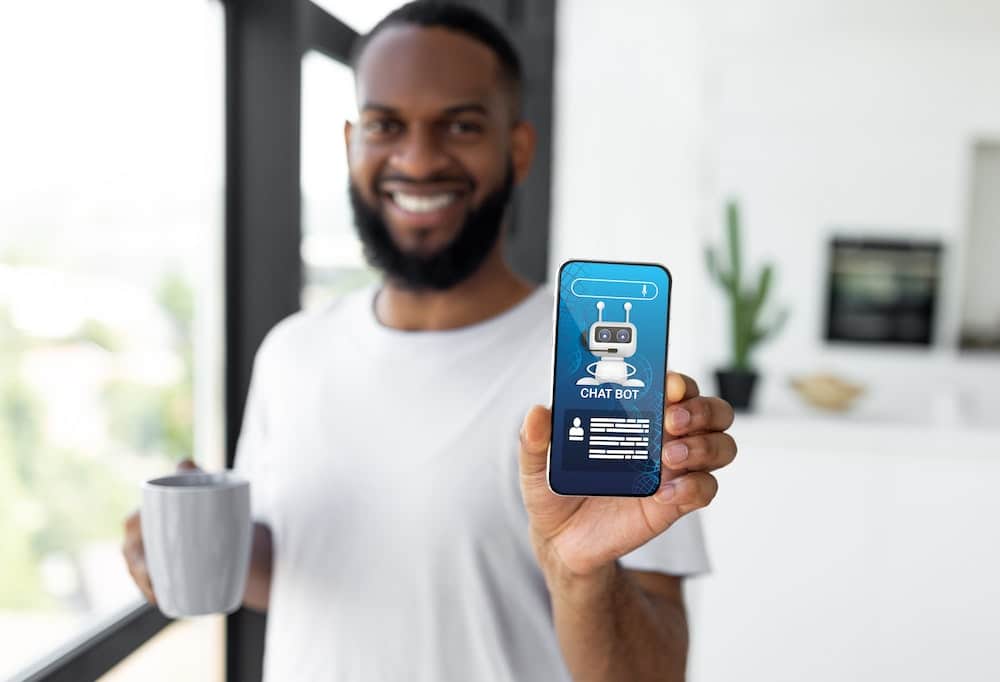Can AI-Powered Bots Provide Effective Mental Wellness Coaching?

Artificial intelligence has made extraordinary strides in recent years, with AI-powered bots now being found in a variety of fields. One area that’s particularly ripe for exploration is the world of mental health care. As the stigma surrounding mental health continues to fade, more people than ever are seeking help. However, traditional therapy methods, such as face-to-face sessions, might not be suitable for everyone. This is where AI-powered bots come into the frame.
Chatbots, digital applications powered by AI, are now being used in healthcare to provide support to users seeking assistance. In this article, we’ll delve into the topic of AI-powered bots as a tool for mental health support. We’ll examine how these chatbots can provide mental health care to users, how they function, and the potential benefits and drawbacks.
Also to discover : Exploring the excitement of the american mystery box experience
AI-powered Chatbots in Mental Health Care
The concept of using AI-powered chatbots in mental health care might seem newer to some of you. However, the application of AI in healthcare is not a novelty. AI has been applied in numerous areas of healthcare, from diagnosing diseases to managing patient care. These bots can provide round-the-clock support to patients, helping alleviate the strain on human healthcare providers.
These chatbots typically use natural language processing and machine learning algorithms to interact with users in a conversational manner. The bots can provide support by offering immediate responses, helping users manage their issues, and even offering therapy-like conversations.
Additional reading : Unleash the fun: what to expect from Mario mystery boxes
Some chatbots are designed to provide cognitive behavioral therapy, a proven technique often used by therapists. These bots can help users identify and challenge their cognitive distortions, essentially providing a form of digital therapy.
The Benefits of AI-Powered Mental Health Chatbots
AI-powered mental health chatbots offer several compelling benefits. These bots are available 24/7, eliminating the need to wait for a human therapist’s availability. This is a significant advantage for those in crisis or experiencing anxiety or insomnia, conditions that don’t adhere to a 9-to-5 schedule.
Moreover, chatbots provide anonymity, freeing users from the fear of stigma associated with seeking mental health care. Unlike human therapists, bots do not judge, and users may feel more comfortable disclosing their feelings to them.
AI-powered bots can also help bridge the accessibility gap. Not everyone has the resources to afford traditional therapy, and mental health care is often scarce in rural or underserved areas. These bots have the potential to democratize access to mental health care, making it available to anyone with an internet connection.
The Challenges of AI-Powered Mental Health Chatbots
While the benefits are significant, there are also challenges to consider when using AI-powered chatbots in mental health care. One of the main issues is the lack of human touch in therapy. A human therapist can understand nuances, read between the lines, and provide empathy—qualities that a chatbot may not fully emulate.
Data privacy and security is another concern. As these bots collect sensitive personal information, there are valid concerns about how this data is stored, used, and protected.
Lastly, while chatbots can provide support, they can’t replace a comprehensive mental health care plan supervised by professionals. A chatbot, no matter how sophisticated, cannot diagnose disorders or provide a treatment plan.
The Future of AI-Powered Mental Health Chatbots
Despite these challenges, the future of AI-powered mental health chatbots looks promising. Advances in AI technology will improve the capabilities of these bots, making them more adept at understanding and responding to users’ needs. They are not meant to replace human therapists but to supplement them, acting as a first line of support.
While we must continue to address the challenges, these bots could become a vital part of mental health care. They could help reach people who would otherwise go unsupported, providing a lifeline to those in need. After all, in the realm of mental health, sometimes a conversation—whether with a human or a bot—can make all the difference.
[Note: No conclusion is provided as per the instructions.]
Enhancing Access to Mental Health Support Through Chatbots
Within the realm of mental health, access to care can often be a significant barrier. Whether due to geographical location, financial constraints, or stigma, many people who need mental health support do not receive it. This is where AI-powered chatbots can make a substantial difference.
AI-powered chatbots offer an accessible and affordable form of support. As web-based applications, they can reach users in remote or underserved areas who may not have access to traditional mental health services. Their 24/7 availability also means that help is on hand whenever users need it, not just during standard office hours.
Cost is another critical factor. Traditional therapy can be expensive, and not everyone has the means or the insurance coverage to afford it. In contrast, many mental health chatbots are free, or have a low-cost subscription model, making them a more feasible option for a lot of people.
The anonymity offered by chatbots can also help to overcome the stigma associated with seeking help for mental health issues. Users may feel less judged and more comfortable opening up to a bot than they would to a human.
However, it’s crucial to note that these chatbots are not meant to replace professional mental health care. Instead, they serve as a supplement, providing users with an additional means of support.
Data Privacy and Ethical Considerations in AI-Powered Mental Health Chatbots
While the advent of AI-powered chatbots in mental health care offers numerous benefits, it also brings potential concerns about data privacy. Chatbots collect and process vast amounts of sensitive information, raising questions about how this data is stored, used, and protected.
Healthcare providers must adhere to stringent data protection regulations, such as the Health Insurance Portability and Accountability Act (HIPAA) in the U.S. However, the rules for AI chatbots are less clear, and there is a risk of data breaches or misuse of information.
Additionally, there are ethical considerations to bear in mind. For instance, how should a chatbot respond if a user expresses suicidal thoughts? While a human therapist would be trained to handle such a situation, a chatbot might not be capable of providing the appropriate response.
Despite these challenges, the potential of AI-powered chatbots in mental health care is undeniable. As the technology continues to evolve, it is hoped that these issues can be addressed, and that chatbots can play an increasingly significant role in mental health support.
Conclusion
AI-powered mental health chatbots are an innovative tool in the evolving field of digital health. They offer the potential to democratize access to mental health support, providing help to those who might otherwise go unsupported due to barriers like cost, location, and stigma.
Yet, as with any disruptive technology, they also present challenges. Concerns around the lack of human touch, data privacy, and ethical dilemmas must be addressed as the technology evolves. It’s clear that while these chatbots cannot replace human therapists, they can serve as a valuable supplementary tool.
As we look ahead to the future of mental health care, AI-powered chatbots will undoubtedly play a crucial role. The fusion of technology and mental health care holds immense promise, offering new avenues for support and treatment not previously possible. Ultimately, the goal remains the same: to ensure effective, accessible mental health care for all who need it. And in this endeavor, AI-powered chatbots are a significant ally.
